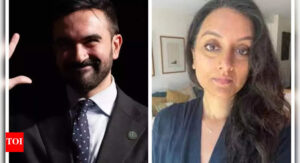How ‘othering’ in university spaces impacts students

Universities are often heralded as liberal and progressive spaces which promote ideas of equality and social justice. But they do not exist in isolation, and are representative of the society that we live in. The recent death of a Nepali student at the Kalinga Institute of Industrial Technology (KIIT) in Bhubaneswar, Odisha has once again highlighted how universities are microcosms of existing social hierarchies in society. A 20-year-old student from Nepal was found dead in her hostel room last week. While the reasons for her death are still unclear, it has been alleged that she was harassed by a male student from the same institute. Reports speculate that the male student was the deceased student’s ex-boyfriend who physically and verbally abused her.
According to the University Grants Commission (UGC), 378 cases of sexual harassment were reported in universities from April 2022 to March 2023. This does not include other kinds of harassment. One can only imagine the magnitude of other forms of harassment and the unreported cases of sexual harassment that happen within these campuses.

The KIIT case is a reflection of how women continue to remain vulnerable, and are regularly discriminated against on educational campuses. According to the All India Survey on Higher Education (AISHE) by the union education ministry, women are outnumbered by men in engineering and technology programmes, especially in private universities. This is true for both students and faculty. As such, there is a greater need for protection of women’s rights in Higher Educational Institutions (HEIs), especially in private universities. According to UGC rules, HEIs are required to have policies to prevent sexual harassment and committees to combat violence against women. But filing complaints still remains a daunting task for the affected women as they are often judged and shamed for what they go through. This could also have been true for the KIIT case.
Apart from gendered differences, universities also become spaces in which other processes of marginalisation operate. Suicide cases linked to casteist and racist practices have rocked several campuses of the Indian Institute of Technologies, national law universities as well as central universities. In the KIIT incident as well, one can see how Nepali students were othered in the aftermath of the suicide. In response to protests by students from the Nepali community, the university asked them to vacate the campus premises and were subjected to derogatory remarks made against Nepal. Some staff members drew comparisons between India and Nepal’s budgets. Eventually, widespread backlash made the university suspend some of its staff members as well as withdraw the decision to evict the protesting students. Apologies for the offensive comments have also been rendered. Some of the staff as well as the suspected ex-boyfriend have been arrested.
The Odisha govt has assured that a thorough investigation would be conducted in response to the Nepal govt’s demands for an impartial investigation. Arrangements have also been made for the safety and security as well as the protection of academic interests of the Nepali students. The fact-finding committee set up by the Odisha govt has also been asked to probe why the state govt was not informed about KIIT’s treatment of its students.
The KIIT incident has set off a diplomatic row but such incidents have become common in HEIs. The bias that exists against the Nepali community is unmistakable with remarks measuring the protesting students and the deceased student’s worth against their country’s budget. Such projections stem from how Nepalis are perceived in society. The term kancha — often used to describe a Nepali person— is used to mean a worker who does manual labour.
It’s similar to how terms like Nigerian and chinky, Chinese, etc. are used to derogate Africans and north-east Indians respectively. Students from these communities too have faced racism, not just in university campuses but also in residential spaces. While universities still provide some kind of institutional support in situations of discrimination, in other spaces like housing colonies racism is rampant.
As such, when the universities display a lack of accountability and institutional support, it becomes even more difficult for students who are migrants from faraway places.
In many colleges and universities such as the University of Delhi, there are now special cells for students from north-east India. There are also special cells like women development cells in many public HEIs, which play a significant role in raising awareness against socially harmful practices such as racism and gender -based discrimination. Such initiatives should also become part of private universities as well as other technical and law institutes. There is also a need to focus on building similar special cells for foreign students. These can become spaces for them to raise their issues and concerns. Unless the special needs of marginalised sections are well taken care of, universities cannot really call themselves inclusive. And such cases of othering will continue to make headlines.
Disclaimer
Views expressed above are the author’s own.
END OF ARTICLE







